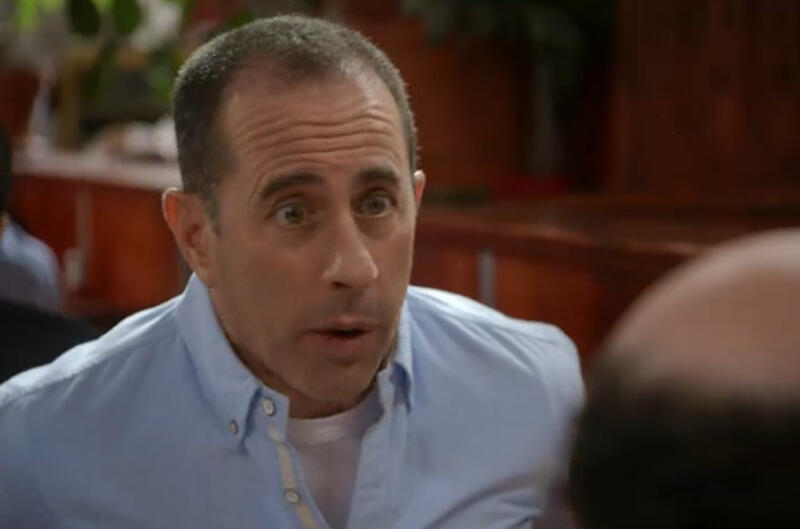Have you also come across the term "Ted Mosby Syndrome" online and wondered what it’s all about?
Well, Ted Mosby is the protagonist of the smash-hit sitcom How I Met Your Mother, and he’s an incurable romantic – the kind of guy who only needs one glance at someone to decide she’s his future wife.
They’re all characters from successful TV shows who represent a problematic pattern when it comes to relationships.
How can you tell if you’re dating someone who’s a Ted, Jerry or Ross? We consulted couples and family therapist Moran Rave-Bachar to get the answers (by the way, while the text refers to men, these behavioral patterns can definitely appear in women too).
Ted Mosby: Building castles in the air
Ted from How I Met Your Mother is the ultimate hopeless romantic, fantasizing about a rosy future with a partner just five minutes after meeting her.
Or as he himself puts it: "There are two big days in every love story – the day you meet the one, and the day you marry them."
Among the grand gestures Ted made for his partners: stealing a French horn for Robin and flying to Germany after just a few dates to be with Victoria.
"This is a repetitive behavioral pattern where a person, even before truly diving into a relationship with someone else, already feels strong love and deep excitement," says Rave-Bachar. "Such a person deeply desires a relationship, but even an initial and superficial connection is enough for them to spark intense emotions and far-reaching thoughts about a shared future."
10 View gallery


Ted and Robin - one of many relationships ruined by a hopeless romantic
(Photo: CBS)
How can this behavior sabotage relationships?
"People like this can often come across as overwhelming because the intensity they bring into the relationship usually doesn’t match the stage or emotional state of their partner. Right from the start, they ask intimate questions and make grand declarations about their shared future. In many cases, this can lead to rejection from the other side, who feels the relationship is progressing too intensely, causing disappointment and emotional pain.
"At the same time, people who build castles in the air might find themselves disappointed by the relationship. The greater the excitement, the higher the expectations – and from there, there’s only one way to go: down.
"The fantasy space of the romantic story in that person’s mind often doesn’t align with reality. So even when the other side doesn’t feel pressured and the relationship progresses, there’s still a chance this behavior could eventually lead to a breakup."
Signs you shouldn’t ignore
Grand declarations: Early in the relationship, he says things like, "I’ve never met anyone like you," "You’re the person I’ve been waiting for my whole life" or even "I love you"—far too soon.
Future plans: At a very early stage, he’s already imagining what comes next and doesn’t hesitate to share these thoughts with you or those close to him. For example: what your wedding will look like, how many kids you’ll have, where you’ll live and more.
Accelerated intimacy: After just a few dates, he suggests traveling abroad together or taking a weekend getaway at a hotel. At the same time, he wants you to meet his closest friends and family right from the start.
Intense communication: He calls or texts frequently, sometimes with questions like, "Where are you now?" or "What are you doing?"
Desire for immediate and clear feedback: He seeks constant reassurance about how you feel about the relationship, sometimes to the point of persistent insistence. At the same time, if he doesn’t receive clear declarations about your feelings and intentions, he might experience deep disappointment, stress, anxiety and low mood.
Sudden withdrawal: When the relationship doesn’t match his fantasy, he can suddenly lose interest, which may lead him to want to end things abruptly.
Jerry Seinfeld: Breaking up over everything
Jerry (the character, not the actor and comedian himself) is famously known for finding a reason to break up with every woman he dates. Some of his reasons are downright bizarre: she sneezes weirdly, her hands are too big, she always wears the same dress, she ranked him too low on her speed dial or the ultimate dealbreaker – she eats her peas one by one (with a fork).
"This is someone who quickly disqualifies their partners over both significant and trivial matters," explains Rave-Bachar.
"This critical approach is essentially a defense mechanism, providing legitimacy to avoid entering a relationship or investing in it emotionally"
"Such a person struggles with a dissonance between the desire to be in a relationship and their emotional maturity to sustain a serious connection. After all, a relationship requires compromise, letting go and softening edges. It’s possible that this person has faced disappointments in the past—perhaps their parents didn’t provide a healthy relationship model, or they were burned in a previous romantic connection, creating emotional barriers.
"This critical approach is essentially a defense mechanism, providing legitimacy to avoid entering a relationship or investing in it emotionally."
How can this behavior sabotage relationships?
"Such critical individuals might enter a relationship and even go through all the right motions in the early stages of courtship.
"At first, they may feel enthusiastic and optimistic about the connection. But very quickly, a tsunami of cold thoughts takes over, eventually causing them to end the relationship. From their perspective, the reason they chose to walk away feels entirely justified.
Get the Ynetnews app on your smartphone: Google Play: https://bit.ly/4eJ37pE | Apple App Store: https://bit.ly/3ZL7iNv
"In the best-case scenario, they’ll keep their criticisms to themselves (or share them only with close friends). However, in some cases, they might express these criticisms directly to their partner."
Signs he’s critically obsessive
Inconsistent communication: In the first few dates, communication will seem consistent. But suddenly, he initiates fewer conversations, responds less frequently (or gives brief replies), postpones the next meeting repeatedly and sometimes simply disappears.
Contrarian conversations: Shortly after the courting stage, he stops trying to charm and does the opposite – emphasizing differences and highlighting gaps between you. For example: "It sounds like you give up easily. I’ve learned that success only comes from persistence," or "You love fancy restaurants, but I’m a modest person."
A hint of arrogance in conversations: He gives off the impression that he knows everything and that his opinion carries more weight, leading to assertive statements that diminish your perspective, such as: "You probably don’t understand this," or "You’re too naive. It’s good you’re not in business."
Hyper-critical to the point of pettiness: Comments like, "You probably don’t notice, but your voice is really high-pitched," "You eat in a weird way," or "That perfume doesn’t smell good on you." In reality, such a person is constantly trying to change their partner and will always find additional reasons to disqualify them.
Short-lived relationships: An inability to maintain a relationship over time, to the extent that the relationship struggles to last even a few weeks.
Ross Geller: I now pronounce you... and you... and you
Ross from Friends is the quintessential serial husband, someone who feels warm and fuzzy just hearing the word "ring." Early in the series, he’s already the only married one in the group (to Carol, who later comes out as a lesbian).
Later, he marries Emily (but accidentally says Rachel’s name at the altar), and during a drunken night in Las Vegas, marries Rachel (and prefers not to annul the marriage because then he’d carry the title of "three-time divorcee").
"This is someone who feels it’s important to be fully invested in a relationship, to the point of committing to the binding title of marriage," explains Rave-Bachar.
"A person who seeks to be married – meaning to go through an official ceremony, a stamp of a committed relationship – is often someone who doesn’t fully trust their partner when it comes to loyalty, stability or even their own level of love and emotional commitment to the relationship. For them, the ceremony acts as a test for long-term commitment."
How can this behavior sabotage relationships?
"Such individuals aim high right from the start, asking and declaring intentions early on. The idea of being in a relationship becomes the core of the connection – sometimes more than the relationship itself."
Signs you’re dealing with a serial spouse
History of marriages and divorces: A pattern of repeated divorces, often after relatively short periods of marriage.
Idealization of marriage: The word "wedding" often comes up early in the relationship. Some may view marriage as a symbol of social or personal success.
Fast-paced relationship dynamics: Early on in the relationship, he might offer you the key to his apartment, introduce you to his friends and family and bring up the topic of living together.
Difficulty coping with loneliness: Serial spouses are often afraid of being alone, which drives them to quickly enter new relationships—sometimes just months or even weeks after a breakup.
A dramatic view of life: The rituals of romance, including a grand wedding, create a high emotional adrenaline rush. However, when routine sets in, there’s often a drop in excitement. Naturally, the next thrill comes with the act of divorce.
'Ross is a supervillain, Ted is the bad guy'
Are Ted Mosby and Ross Geller really the "good guys" they’re often portrayed as, or are they actually narcissistic and toxic men?
According to TikTok, which is flooded with takes on this topic, the answer is clear.
"Ted Mosby is actually the bad guy," according to one viral video. "He acts selfishly toward his love interests and refuses to let others' feelings influence his perception of reality."
As for Ross, users argue that he’s "the worst character on Friends" and even a "supervillain." They point to numerous examples: dating one of his students, breaking up with a woman because she shaved her head, refusing to let his son play with Barbie dolls and being "homophobic" toward his first wife, who came out as a lesbian.
Even psychologists who have analyzed these characters over the years have questioned whether they represent a broader societal issue, where toxic behaviors are presented as humorous or excusable under the guise of romance or comedy.
From this perspective, Ted insists on portraying himself as an eternal romantic, but he often employs emotional manipulation toward women and tends to turn them into "projects" designed to fulfill his personal needs. Ross, on the other hand, appears to be the sweet and nice guy but ultimately expects the world to adapt to him.











